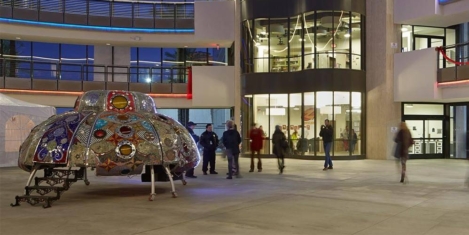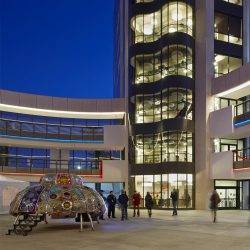May 24, 2019
One in eight people are unhappy at work
 The UK workforce is increasingly held back by mental health problems such as stress, depression and anxiety. According to a study of 23,000 full and part time workers by Robert Half UK, more than one in eight (13 percent) UK employees are unhappy at work, accounting for more than 4.3 million people. The UK has the highest rate of unhappiness in the workplace among the countries surveyed, including Canada, Australia, Germany and 4 percent higher than in the US. The research claims that one in three (31 percent) UK respondents admitted to finding their work stressful, while one in 10 (12 percent) employees report being dissatisfied with their work–life balance. (more…)
The UK workforce is increasingly held back by mental health problems such as stress, depression and anxiety. According to a study of 23,000 full and part time workers by Robert Half UK, more than one in eight (13 percent) UK employees are unhappy at work, accounting for more than 4.3 million people. The UK has the highest rate of unhappiness in the workplace among the countries surveyed, including Canada, Australia, Germany and 4 percent higher than in the US. The research claims that one in three (31 percent) UK respondents admitted to finding their work stressful, while one in 10 (12 percent) employees report being dissatisfied with their work–life balance. (more…)

























 Fifty percent of UK employees feel their employers don’t understand them or their potential – higher than the European average of 46 percent according to a study of over 2,000 workers across the UK, France, Germany, Italy and the Netherlands from ADP. The research found that 40 percent of UK workers are unhappy with the quality of leadership, with only France reporting slightly higher figures, where 52 percent saying they feel misunderstood by their employer. This was followed closely by Italy (48 percent) and Germany (46 percent), while the Netherlands reported the most positive results with only a third stating such feelings (35 percent). However, UK and European employees are more likely to feel their direct reports understand them better, with 61 percent reporting that their managers know and support them, and want to see them succeed. This shows that those working more closely together enjoy better relationships, which in turn is likely to lead to better quality of work and greater productivity. The lesson for businesses is that close relations between all staff, regardless of seniority, matter.
Fifty percent of UK employees feel their employers don’t understand them or their potential – higher than the European average of 46 percent according to a study of over 2,000 workers across the UK, France, Germany, Italy and the Netherlands from ADP. The research found that 40 percent of UK workers are unhappy with the quality of leadership, with only France reporting slightly higher figures, where 52 percent saying they feel misunderstood by their employer. This was followed closely by Italy (48 percent) and Germany (46 percent), while the Netherlands reported the most positive results with only a third stating such feelings (35 percent). However, UK and European employees are more likely to feel their direct reports understand them better, with 61 percent reporting that their managers know and support them, and want to see them succeed. This shows that those working more closely together enjoy better relationships, which in turn is likely to lead to better quality of work and greater productivity. The lesson for businesses is that close relations between all staff, regardless of seniority, matter.







February 21, 2019
Why the gender pay gap is an enduring challenge for many organisations
by Heejung Chung • Comment, Workplace
(more…)